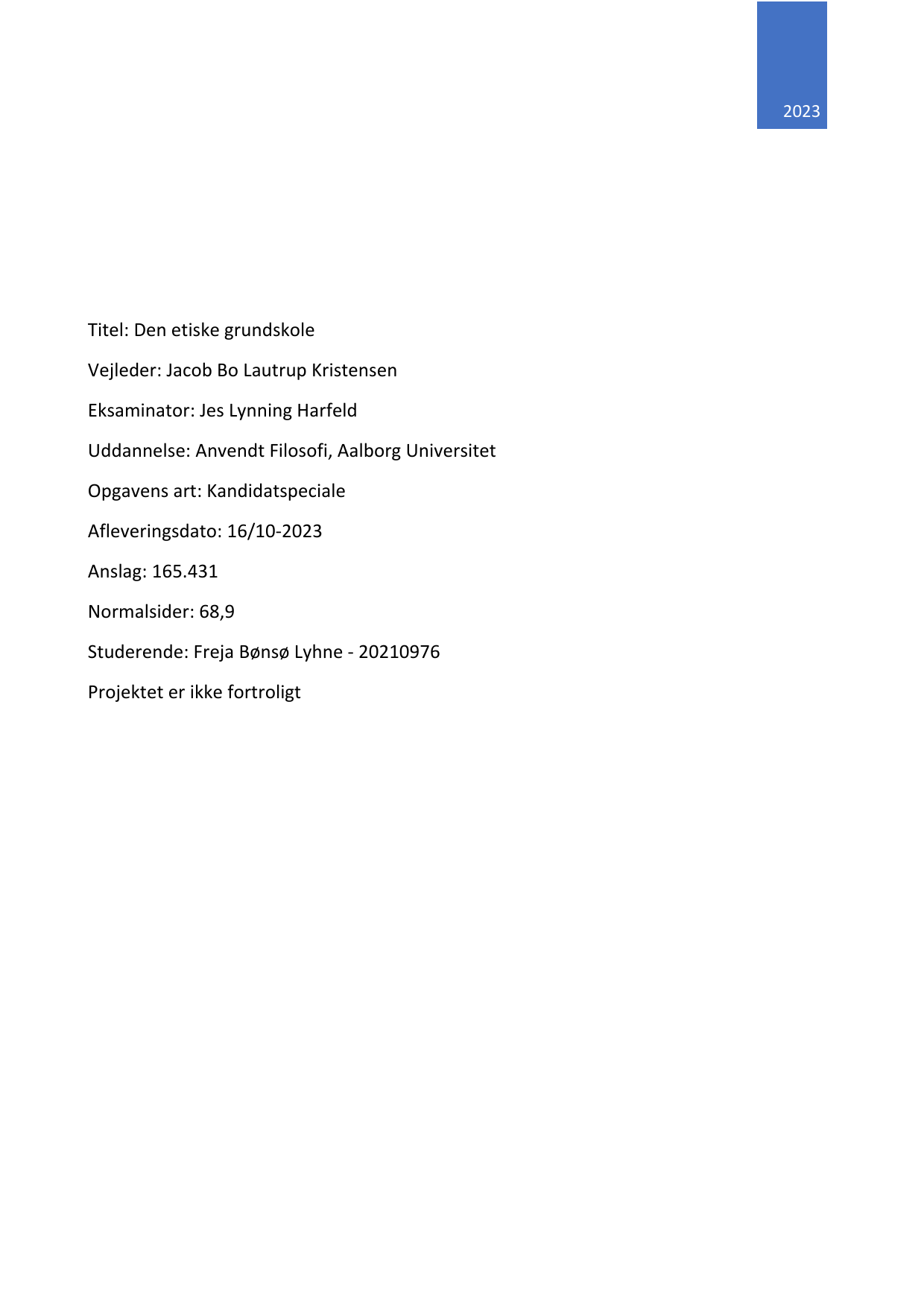
Den etiske grundskole
Oversat titel
The Ethical Primary School
Forfatter
Semester
4. semester
Uddannelse
Udgivelsesår
2023
Afleveret
2023-10-15
Antal sider
82
Abstract
In this project the necessary conditions for ethical treatment of children have been examined. Ethical treatment of children is, in the project, viewed as having three parts: First, the child should be treated ethically during the given child's childhood. Secondly, the ethical treatment of children must equip the child to become an adult capable of handling his or her own life. Finally, the ethical treatment of children helps the child become an ethical agent as an adult. During the project, with Kant as the focal point, it has been examined what ethical treatment of children is. Based on this examination other philosophers and psychological theorists have been used to make suggestions on how Kant's pedagogy can be adjusted and expanded to form the foundation of a school that has ethical treatment of children as its focal point. Subsequently, this foundation is used to form an ideal elementary school. This ideal has then been used to make a more pragmatic proposal for changes in the Danish elementary school in its current form. During the project, it was derived that the following conditions must be met to enable ethical treatment of children in elementary school: First, the teachers at the school must have a healthy image of children, which means an expansion of the categorical imperative to include children as rational beings. Secondly, it is a condition that the adults in children's lives, including teachers, do not see their own role in the children's lives as being to bring humanity closer to the Kingdom of Ends, but instead perceive children and their childhood as a purpose in themselves. However with the exception of cases where the child's childhood is used as a means of their own future adult-ness. In situations of doubt, however, the child’s childhood must always be prioritized over the child's future adult self. Thirdly, the teachers at the school must recognize that upbringing, ethical education and teaching of children cannot be separated. The teachers must therefore also take the role of ethical role models and caregivers. This means that the teacher must simultaneously be able to get the child's attachment-conscience and be a good ethical role model for the child by being ethically competent - which is not the same as ethically responsible. Fourth, the children must both have freedom and self-determination, and help to deal with the anxiety that this causes. Fifthly, teachers must be able to provide relationship-building blaming which consists of three parts: Being an ethical role model for receiving reproach, meaning that one must be aware that one may be non-self-inflicted incompetent, having the attachment of the child and only blaming the child in an age-appropriate manner. Sixth, the teachers at the school must be able to work under conditions that do not allow their own views of ethics to completely unfold without affect-ing their ethical compass. Seventh, the teachers at the school must be good subject-matter teachers in general and in relation to the specific children. Finally, in order to enable ethical treatment of children, conditions must be offered that allow children to have a consistent at-tachment figure throughout their schooling.
